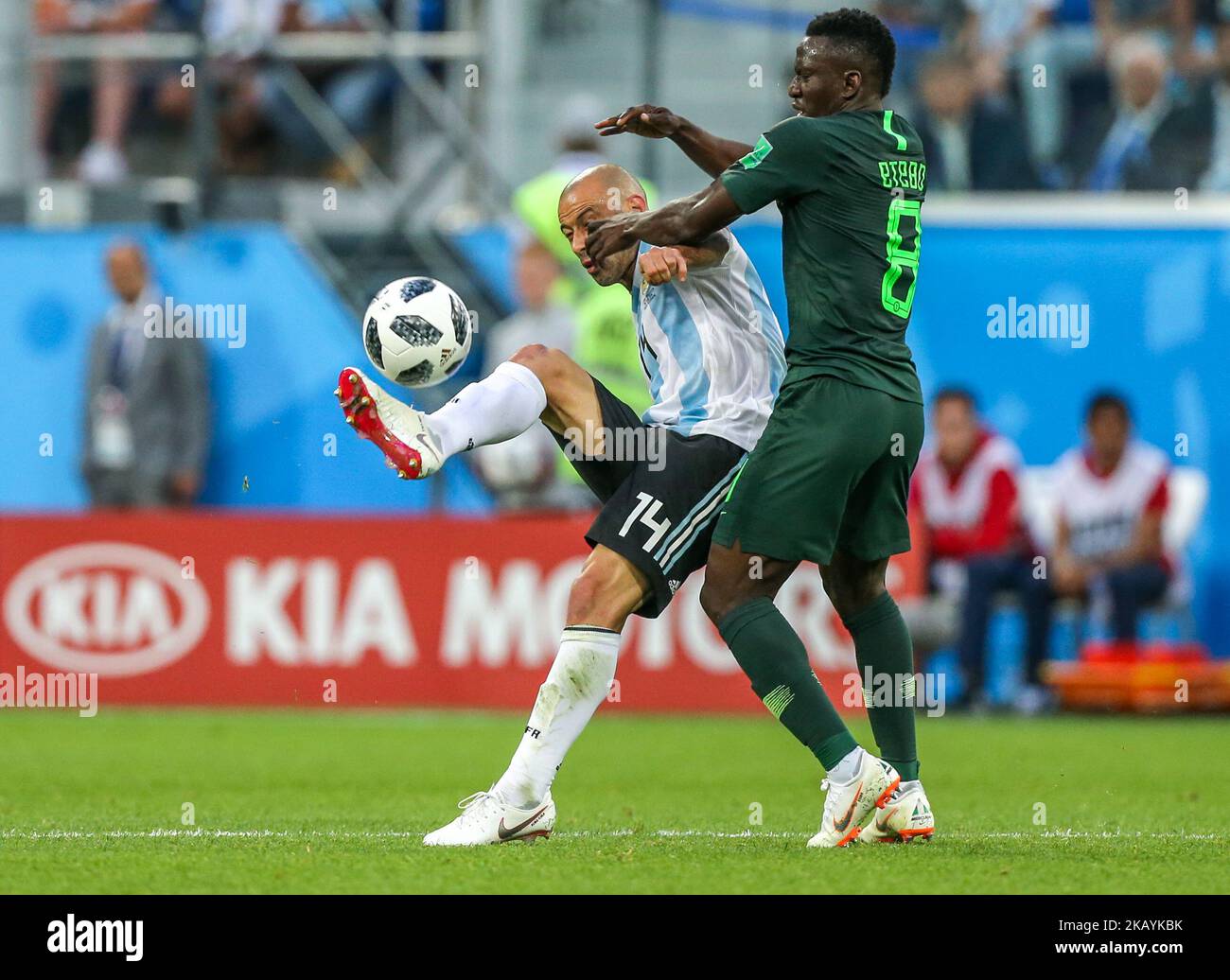How Started Soccer To Nigeria: The Origins Of Soccer Within Nigeria
본문
A massive 67% of Nigerians see Football, which demonstrates how much the sport influences Nigerian culture. Football's journey in Nigeria began over 100 years earlier, shaping the nation's sporting landscape.

Football in Nigeria dates back to the early 1900s. British colonisers brought the sport to the nation in 1904. The very first recorded football match happened that exact same year, starting Nigeria's abundant footballing history.

By 1950, Football had actually become Nigeria's nationwide game. Its quick increase led to lots of clubs and associations forming in the early 1900s. This growth increased Nigerian pride and helped motivate political flexibility motions.
Nigeria's football tradition now reaches beyond its borders. Throughout the years, the country has actually produced first-rate skill, and Nigerian youth teams have actually won the FIFA U-17 World Cup 5 times.
The Super Eagles, Nigeria's national team, are a force in african cup of nations Football. They often receive significant competitions and make their mark globally.
The British Colonial Introduction of Football to Nigeria
Football arrived in Nigeria throughout the British colonial age. It rapidly captured the hearts of locals, marking the start of an abundant footballing custom in the nation.
The First Football Match in 1904
The first football association football match in Nigeria happened in June 1904. It was between Hope Waddell Training Institution and the crew of HMS Thistle. The Nigerian group won 3-2, triggering an across the country enthusiasm for the sport.
Hope Waddell Training Institution vs HMS Thistle
I hope the Waddell Training Institution in Calabar played a crucial role in early Nigerian Football. Their success over HMS Thistle's crew showed the talent of Nigerian gamers. This match set the stage for Football's growth in the nation.
Early Football Club Formation (1906-1932)
After the 1904 match, Football's popularity skyrocketed. From 1906 onwards, early football clubs began forming, and this grassroots motion spread out the sport throughout Nigeria.
The Lagos District Amateur Football Association (LDAFA) was established in 1932. The LDAFA marked the start of organised Football in Nigeria and led the way for the sport's future success nationally and globally.
Who Introduced Football in Nigeria
Football arrived in Nigeria in the early 20th century. British colonisers brought this precious sport to the West African nation. It rapidly became a passion that shaped Nigeria's sporting landscape for generations.
Function of British Colonisers
British colonisers played an essential role in Nigeria's football history. The very first recorded match took place in June 1904. Hope Waddell Training Institution dealt with the team of HMS Thistle.
The nigerian youths group won 3-2. This victory marked the start of an abundant football tradition in the country.
Formation of First Football Association
The Lagos District Amateur Football Association (LDAFA) was established in 1932. It laid the groundwork for organised Football in Nigeria, which paved the way for the Nigerian Football Association (NFA).
The NFA was founded in 1945. It became the national governing body for Football and oversaw its advancement across the nation.
Development of Local Football Culture
Football rapidly took root in Nigeria, becoming the national sport by 1946. Its ease of access and easy guidelines assisted it spread out quickly. Local neighborhoods welcomed the video game, forming their teams.
This grassroots enthusiasm laid the structure for Nigeria's future success. The country's passion for Football grew, resulting in achievements on the international phase.
"Football ended up being more than just a sport; it progressed into an essential Nigerian culture and identity component."
The British colonisers' introduction of Football triggered a sporting transformation in Nigeria. Football's journey mirrored the country's growth from the first match in 1904 to the formation of the NFA in 1945.
Today, Football remains an integral part of Nigerian life. It's a testament to the sport's enduring appeal and cultural significance in the nation.
The Rise of Nigerian Football Administration
The Nigerian Football Association (NFA) was developed in 1945. It played an essential function in shaping Nigerian Football. In 1949, the NFA formed Nigeria's first national football group.
In 1959, Nigeria signed up with the Confederation of African Football (CAF), which allowed it to take part in continental competitions. Nigeria also became a FIFA member in 1960, signing up with the international football neighborhood.
The NFA, later renamed the Nigeria Football Federation (NFF), organised national competitions. They developed the Nigerian Premier League and the Federation Cup, which became the highlights of domestic Football.
Football associations throughout Nigeria thrived under the NFF's assistance. They nurtured talent and promoted grassroots development. Expert Football started in 1990 with sixteen club sides taking part.
"Our objective is to revive football development at the national level and repackage the league in line with worldwide best practices," specifies the Nigeria National League.
The Premier League was carried out in 2003. This move aimed to improve domestic football standards and bring in more spectators and sponsors to national competitions.
Nnamdi Azikiwe's Impact on Nigerian Football
Nnamdi Azikiwe, born in 1904 in Zungeru, Northern Nigeria, left an indelible mark on Nigerian Football. His influence formed the country's sporting landscape. Azikiwe's enthusiasm for sports came from his varied experiences and education abroad.
Establishment of Zik's Athletic Club
In 1938, Azikiwe founded Zik's Athletic Club (ZAC) in Lagos. This club became a symbol of African self-determination. ZAC played a vital role in establishing Nigerian Football.
It provided a platform for young professional athletes to showcase their abilities. The club promoted regional skill and promoted a sense of national pride.
The West African Pilot's Influence
Azikiwe's paper, the West african cup of nations Pilot, played a substantial function in popularising Football across Nigeria. It extensively covered local matches, team news, and gamer profiles. This limelights helped grow the sport's fan base.
Football as a Tool for Independence
Azikiwe saw Football's potential as a unifying force in the independence motion. He used the sport to break down ethnic barriers, and Football became a symbol of Nigerian unity through his advocacy.
Azikiwe's efforts linked Football to nationalism, contributing substantially to the sport's growth and shaping its role in modern-day Nigeria.
"Football is not just a game; it's an effective national unity and identity tool."
Nigeria's Journey to International Football Recognition
Nigeria's football journey took a considerable leap forward in 1960. The nation acquired FIFA membership, marking its entry into international Football. This turning point accompanied Nigeria's independence from British rule.
FIFA Membership and First International Match
Nigeria's very first international match occurred on 8 October 1949. They faced Sierra Leone and won 2-0 in a historical encounter. This triumph stimulated enthusiasm for Football across the country.
Early Continental Competitions
Nigeria debuted in the Africa Cup of Nations in 1963. The competition, hosted by Ghana, saw Nigeria dealing with difficult opponents. These experiences proved important for the group's growth.
Nigeria's perseverance settled in 1973. They clinched gold at the All-Africa Games, marking their first major continental success. 1976, they secured bronze at the Africa Cup of Nations in Ethiopia.
Nigeria's football prowess grew in the 1970s. In 1978, they duplicated their bronze medal feat in Ghana. 1980, Nigeria hosted and won its very first Africa Cup of Nations title.
Advancement of Nigerian Football Governance
Nigerian football governance has actually seen substantial changes and difficulties since 1945. The Nigeria Football Federation has actually shaped the country's football landscape, and its journey has been complicated and transformative.
From NFA to NFF
The Nigeria Football Association started in 1945. It became the Nigeria Football Federation in 2008. This modification aimed to modernise the organisation's structure.
In 2019, a bill was passed to recognise the NFF formally. It's still waiting for presidential approval.
Advancement of League Systems
The NFF supervises 3 primary leagues: the Nigerian Premier League, Amateur League, and Women's League. These competitions form the backbone of Nigerian Football.
They cultivate skill and promote the sport across the country. However, obstacles like postponed seasons and venue conflicts continue.
National Team Formation
Nigeria's Super Eagles national team was formed in 1949. They've qualified for six FIFA World Cups and won 3 Africa Cup of Nations titles.
These achievements have actually increased Nigeria's standing in international Football. The Super Eagles' success has actually put Nigeria on the worldwide football map.
Nevertheless, Nigerian Football faces continuous challenges. A study revealed high levels of corruption in football governance. This impacts agreement awards and player choice.
These problems highlight the need for reform. For the sport to thrive, transparency in the Nigerian football administration must improve.
Conclusion
Nigerian Football's tradition showcases the country's durability and enthusiasm. It began in 1904 with Hope Waddell Training Institute facing HMS Thistle. Since then, Nigeria has ended up being a powerhouse in African Football.
The sport's development reflects the nation's journey from colonial rule to self-reliance. It has actually promoted a sense of national pride of national identity and unity. Nigeria's international football recognition is undeniable.
The Super Eagles' gold medal at the 1996 Atlanta Olympics is a highlight. Their impressive FIFA World Cup efficiencies likewise stand out. Nigeria has actually qualified for six World Cups.
In 1994, Nigeria attained its greatest FIFA ranking of 5th, strengthening its put on the global stage. Nigerian Football continues to evolve with appealing potential customers.
Talents like Ahmed Musa and Kelechi Iheanacho shine in top European leagues. This bodes well for the sport's development. The Nigeria Football Federation guides the video game's progress.
Football's enduring legacy in Nigeria inspires upcoming generations and assures an amazing future for the sport. The gorgeous game stays a source of national pride and unity.
FAQ
Who introduced football to Nigeria?
British colonisers brought Football to Nigeria in the early 1900s. The sport quickly became popular and woven into Nigerian culture.
When was the first football match played in Nigeria?
The first recorded football match in Nigeria happened in June 1904. Hope Waddell Training Institution played against the HMS Thistle team. The Nigerian group won 3-2.
How did Football end up being Nigeria's national sport?
Football's basic rules and accessibility made it popular in Nigeria. By 1950, it was the national game, motivating pride and freedom motions.
What role did Nnamdi Azikiwe play in Nigerian Football?
Nnamdi Azikiwe, Nigeria's first football association President, was crucial in developing Football. He started Zik's Athletic Club in Lagos in 1938, and his paper, the West African Pilot, linked Football to the independence motion.
When did Nigeria sign up with FIFA?
Nigeria became a FIFA member in 1960, the exact same year it acquired self-reliance. This significant Nigeria's official entry into international football governance.

What is the Nigerian Football Federation?
The Nigerian Football Federation (NFF) governs Football in Nigeria. It developed from the Nigerian Football Association, established in 1945. The NFF arranges nationwide leagues and competitors, consisting of the Premier League and Federation Cup.
What major successes has Nigerian Football attained?
Nigeria has actually played in 6 FIFA World Cups. The Super Eagles national team has won 3 African Cup of Nations. They've also won gold in the 2nd All-Africa games.


댓글목록 0
댓글 포인트 안내